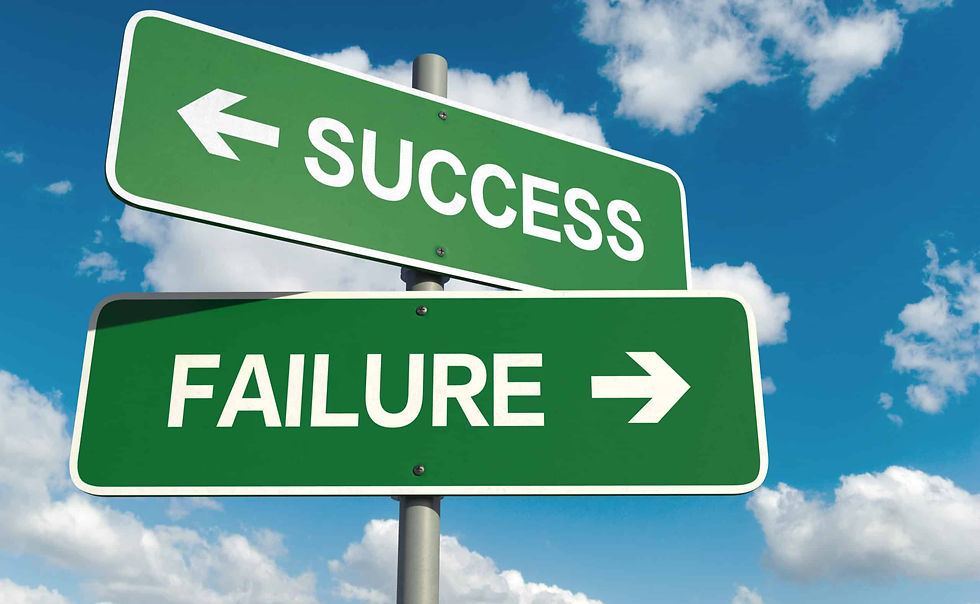When We Fail: Finding the Way Forward
- Emmanuel

- Sep 19, 2025
- 2 min read

This year has not been short on examples of failure. Angela Rayner lost her job after the stamp duty fallout. Kier Starmer dismissed Peter Mandelson over his ties to Epstein. Leaders stumble, excuses fly, and the headlines move on. The pattern is familiar: something goes wrong, the instinct to protect reputation kicks in, and blame is quickly shifted elsewhere.
But if we’re honest, it’s not just politicians. It’s us. In our own lives—at work, in families, in church—failure comes knocking. Mistakes are made, words are spoken too quickly, things slip through the cracks. And more often than not, our first reaction is the same: hide, defend, explain away. It feels safer than honesty.
Yet the truth is, failure is part of being human. And what matters is not that it happens, but how we respond when it does.
The First Response
When mistakes surface, our natural instinct is rarely the healthiest one. We excuse ourselves, point fingers, or retreat. It’s uncomfortable to admit weakness. But in those very moments, an opportunity lies hidden. Instead of scrambling to protect our pride, what if we learned to pause, reflect, and grow?
At Emmanuel, we’ve been exploring a different pattern. A way of responding that doesn’t ignore mistakes, but turns them into building blocks:
Give Thanks – not for the failure itself, but for God’s presence with us even in it. Gratitude re-centres our perspective.
Ask for Guidance – slowing down long enough to invite God to show us what really happened and what could be different next time.
Reflect on Feelings – honestly naming the frustration, disappointment, or shame rather than burying it.
Seek Forgiveness & Give Thanks – owning our part, making amends if needed, and receiving grace afresh.
Look Forward – choosing not to stay stuck in regret, but stepping out with new hope and clarity.
Not Just Triumphs
In life, it’s easy to share our triumphs. The new job, the exam result, the project that worked. But real strength is found when we also share our failures—with trusted friends, with church family, with God. Accountability is uncomfortable, but it’s also liberating. To say, “This is where I went wrong, and this is what I’m learning,” is to let failure shape us rather than shame us.
A Community That Learns Together
What would it look like for Emmanuel to be a church where failure isn’t final? A place where it’s safe to admit mistakes without fear of being written off. A place where people ask each other not just, “What’s going well?” but also, “What didn’t go as planned, and what might God be teaching you through it?”
Because the truth is, failure will always be part of our story. But in God’s hands, it’s never wasted. It becomes formation. It grows humility. It builds resilience. And most of all, it draws us closer to the One whose strength is made perfect in our weakness.
As we look ahead, our challenge is not to pretend perfection, but to walk in honesty. To give thanks, seek guidance, reflect, forgive, and move forward. To carry one another not just through the wins, but through the losses too.
And to remember: the real mistake isn’t failing. The real mistake is refusing to learn.



